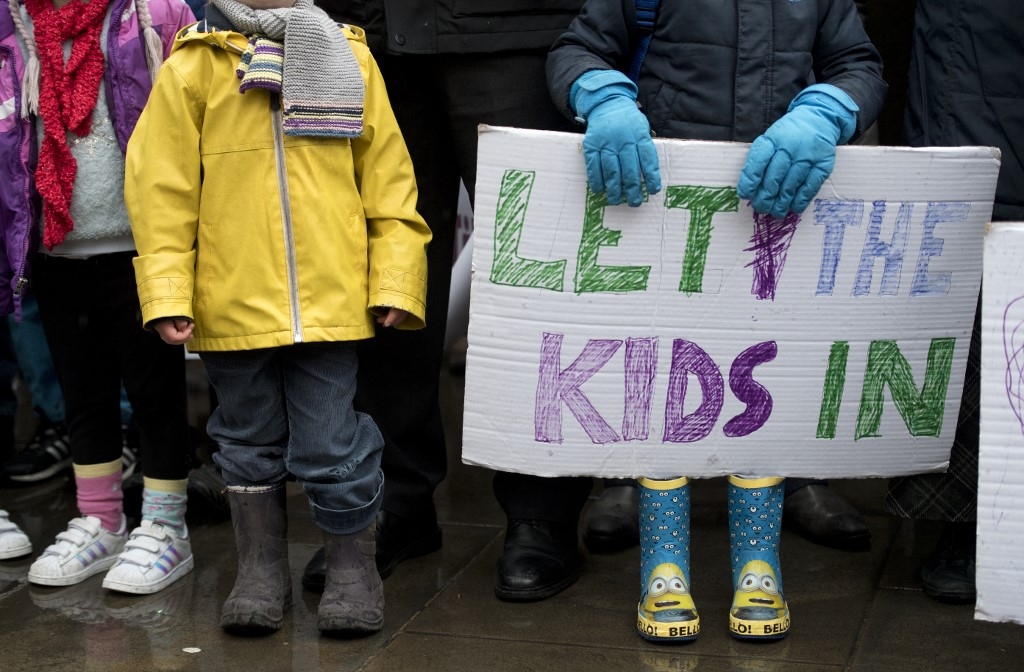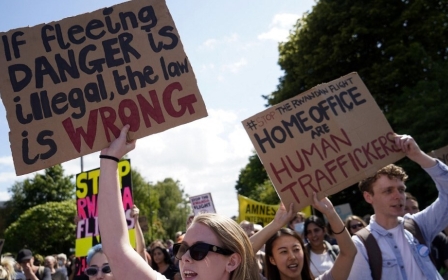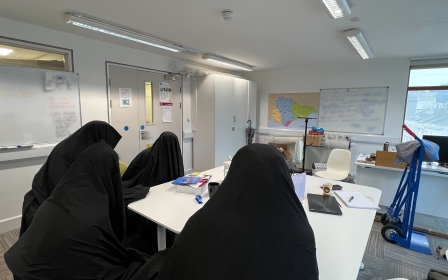UK: Asylum seekers suffer chickenpox due to 'prison-like' hotel conditions

Asylum seekers with young children said they became sick with chicken pox and other illnesses after being forced to live in cramped conditions inside a hotel with mould and damp, according to a report published Thursday by UK-based charity Refugee Action.
The NGO said it interviewed a hundred asylum seekers in London, Manchester, West Midlands, and Bradford for its report, titled Hostile Accommodation: How the Asylum System is Cruel By Design.
Drawing upon individual interviews, casework, and freedom of information requests, Refugee Action spoke to single men, women, and families with young children housed in cheap hotels by the UK Home Office and described the system as a "nationwide system of racialised segregation and de facto detention".
'In general, because of lack of proper hygiene and because it is a closed space, soon after we recover from an illness, we get infected with something else'
- Asylum seeker
The charity found that asylum seekers complained of malnutrition and mental health issues after being served inadequate food, including mouldy bread, at a hotel in West London.
Many female asylum seekers also said they had been unable to breastfeed their babies due to malnutrition, with some fearing for their child’s life if they stayed in the hotels.
New MEE newsletter: Jerusalem Dispatch
Sign up to get the latest insights and analysis on Israel-Palestine, alongside Turkey Unpacked and other MEE newsletters
Another asylum seeker said their hotel had actively discouraged them from taking pictures of the food given to them by the hotel.
Some asylum seekers also said that mould was growing inside their rooms, with instances of damp and rat infestations.
One asylum seeker told the charity that hotel workers had threatened them with deportation to Rwanda if they continued complaining about their hotel conditions.
“A chickenpox outbreak occurred, and everyone got infected, including me, which scared my kids and me,” an asylum seeker told Refugee Action.
“In general, because of lack of proper hygiene and because it is a closed space, soon after we recover from an illness, we get infected with something else.”
Cramped conditions
Cramped conditions, with a lack of privacy and staying in hotels for a prolonged period, also led many to develop physical and mental health issues.
More than half complained of overcrowding, with single men staying in the hotels between a year to two years.
One person spoke of prison-like conditions, saying they were locked in a room "for a week and only had bread and milk" for food.
In one case, a family of seven was sharing two rooms, and in another, a family of six had been living in one room for over a year.

The report also noted how a lack of privacy was compounded by rooms without locks and the behaviour of staff who entered the rooms unannounced.
This new report comes after UK Home Secretary Suella Braverman visited Rwanda last week in a bid to solidify a potential deal to send asylum seekers to the African country for processing.
The placing of asylum seekers in hotels has become a significant issue in British politics.
The government has pledged to end the practice, which costs many millions of pounds per year, amid protests against establishments hosting asylum seekers.
Last December, Middle East Eye spoke to asylum seekers living in mouldy and damp conditions inside a hotel in Hastings.
The men said dirty water was leaking through the roof and internal ceilings inside their rooms.
One refugee said that paint from the bathroom often crumbled onto his body when he was taking a shower, which he said had caused him skin irritation and respiratory issues.
The UK Home Office spokesperson said in statements to the Guardian newspaper: “We do not recognise the claims in the report suggesting hospitalisations, threats of deportation or restriction of movements, but where concerns are raised about any aspect of the service delivered by the hotel we work with the provider to ensure they are addressed in a timely manner.”
Middle East Eye delivers independent and unrivalled coverage and analysis of the Middle East, North Africa and beyond. To learn more about republishing this content and the associated fees, please fill out this form. More about MEE can be found here.




